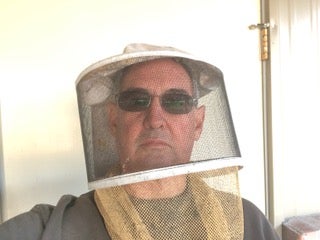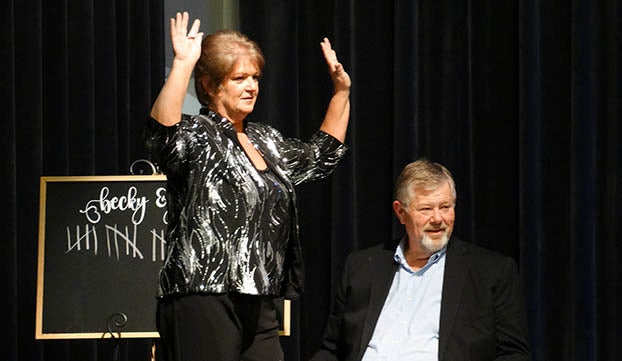Honeybees are dying and YOU might be why
Published 12:24 am Saturday, May 16, 2020
|
Getting your Trinity Audio player ready...
|
Yes, honeybees are having a tough time. Most of you have heard of Colony Collapse or have heard that all pollinators are decreasing in number. As a beekeeper, I am extremely familiar with the effects of a weakened hive.
Studies in the U.S. and Europe show colony loses as high as 50%. A lot of people will point to pesticide use or of beekeepers moving hives around the country for pollination services or to invasive pest which have entered the U.S. in the last 20-25years.
I will say as a hobby beekeeper, like most hobbyist, my bees stay in one place year round, right here in Orange County. My annual loses to date are less than 50% if I don’t count the floods. But maybe that’s not fair because I know other beekeepers face floods, wild fires and even traffic incidences that kill their bees in addition to the “normal” pest, diseases and sprays.
Several studies have been conducted where the honeybees pollen was collected and tested. These studies show lots of pesticides, fungicides and herbicides are contaminating the pollens.
Test show almost 100 different chemicals are present in the bee’s pollen. About 50% of the samples show the Neonicotinoid Imidocloprid this chemical pesticide is found in most of the “Systemic” flower or rose treatments you would find at the local Walmart, Home Depot, Lowes or other farm and ranch store. Imidocloprid is also used in most seed coatings on seeds you might buy for your garden or flower bed.
Studies and test show these chemicals and pesticides concentrations to be less than the government mandated LD50 concentration. LD50 is the toxic level which would cause death to 50% of the exposed organisms. Well as a Beekeeper I know a weakened hive is doomed. It does not take a loss of 50% of the bees to spell death. They just get to a point where they can’t cope with the loss of nectar or pollen collection and young begin to starve. They can’t fight off the Small Hive Beetles or the Varroa Mites. They can’t guard against the Wax Moth and the hive is ravaged by hatching larva.
The studies don’t tell us what the interaction of all the pesticides and herbicides do. It may be that just a little of the Neonicotinoid combined with a little Seven Dust will react to kill 45% of young bees and doom the hive. The chemicals may reduce a bee’s lifespan from 45 days to 35 days. This reduced lifespan would surely cause a hive to starve or be weakened to the point of where they could not defend the hive.
OK, how are You and I to blame? The American Lawn is the most treated agricultural area. Americans use millions of pounds of treatments on their lawns every year. We over treat the flowers in our yard and gardens. We spray when we see 1 bug or find 1 weed in the yard or 1 yellow leaf on our rose bush.
I know you want your yard and garden to look good, OK I get it. But maybe, just maybe, if we treated just the one weed in the yard and not the whole lot a few of the caterpillars might hatch into butterflies. If we squished the one bug maybe a few larva would become moths. Maybe if we did not treat the back yard a few clovers would grow and bloom. Remember the clover necklaces we made as kids, or time we spent looking for 4-leaf clover? Remember watching the butterflies flitter from flower to flower?
Yes, we are all to blame, as a beekeeper I may be a little more aware of how sensitive our environment is. I may see a few more studies showing how our pollinators are being threatened. We all can help correct the decline in pollinators, we can all use a little less “Weed & Feed” a little less “3 in 1” Flower/Rose treatment. Besides seeing a few more flowers, a few more butterflies, you might even save a few dollars. WHEN was the LAST TIME you saw a FIREFLY?? When did you find your last 4-leaf clover?
Remember support your local beekeepers, buy your honey from one of us and not the supermarket.
Len VanMarion is TAIS Master Beekeeper and Texas Master Gardener of Orange, Texas






